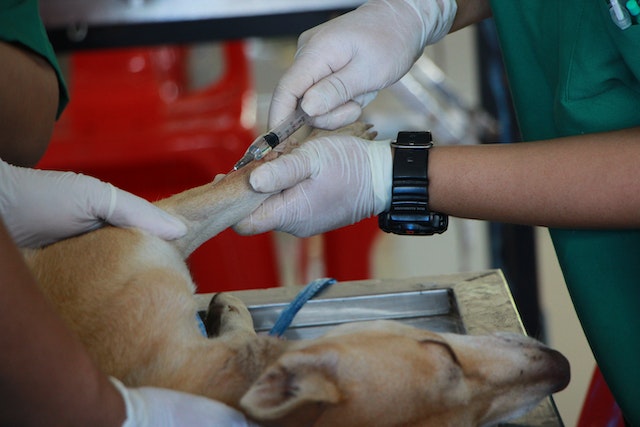Just like humans, dogs can also suffer from allergies. Allergies in dogs occur when their immune system overreacts to certain substances, known as allergens, that are typically harmless. It’s important for dog owners to recognize the causes and symptoms of allergies in order to provide appropriate care and relief for their furry friends.
Causes of Allergies in Dogs:
- Environmental Allergens: Dogs can be allergic to various environmental factors, such as pollen, grass, mold, dust mites, and certain plants.
- Food Allergies: Some dogs may develop allergies to specific ingredients in their food, including common proteins like beef, chicken, or grains such as wheat or corn.
- Flea Allergy Dermatitis: This type of allergy is caused by an allergic reaction to flea saliva. Even a single flea bite can trigger intense itching and discomfort for sensitive dogs.
- Contact Allergies: Dogs can develop allergies to certain materials like certain fabrics, cleaning products, or even certain types of plants.
Symptoms of Allergies in Dogs:
- Itching and Scratching: One of the most common signs of allergies in dogs is excessive itching. You may notice your dog scratching, biting, or licking their paws, belly, ears, or other body parts.
- Skin Irritation: Allergies can cause redness, inflammation, and skin rashes in dogs. You might observe dry, flaky skin or the development of hot spots, which are painful, moist, and infected areas.
- Gastrointestinal Issues: Food allergies can lead to digestive problems in dogs, such as vomiting, diarrhea, or chronic gastrointestinal upset.
- Sneezing and Watery Eyes: If your dog is exposed to environmental allergens, they may experience symptoms similar to hay fever in humans, including sneezing, coughing, and watery eyes.
- Ear Infections: Allergies can make dogs more susceptible to ear infections. If your dog frequently shakes their head, scratches their ears, or has a foul odor emanating from the ears, it could indicate an allergy-related infection.
- Respiratory Problems: Some dogs with allergies may develop respiratory issues, such as wheezing, coughing, or difficulty breathing.
If you suspect that your dog has allergies, it is essential to consult with a veterinarian for proper diagnosis and treatment. Your vet may recommend various approaches, including dietary changes, medications, allergy testing, or allergen avoidance strategies.
Remember, understanding and managing your dog’s allergies is crucial to ensure their comfort and well-being. With appropriate care and support, you can help alleviate their symptoms and provide them with a happier, healthier life.












